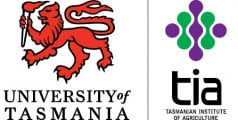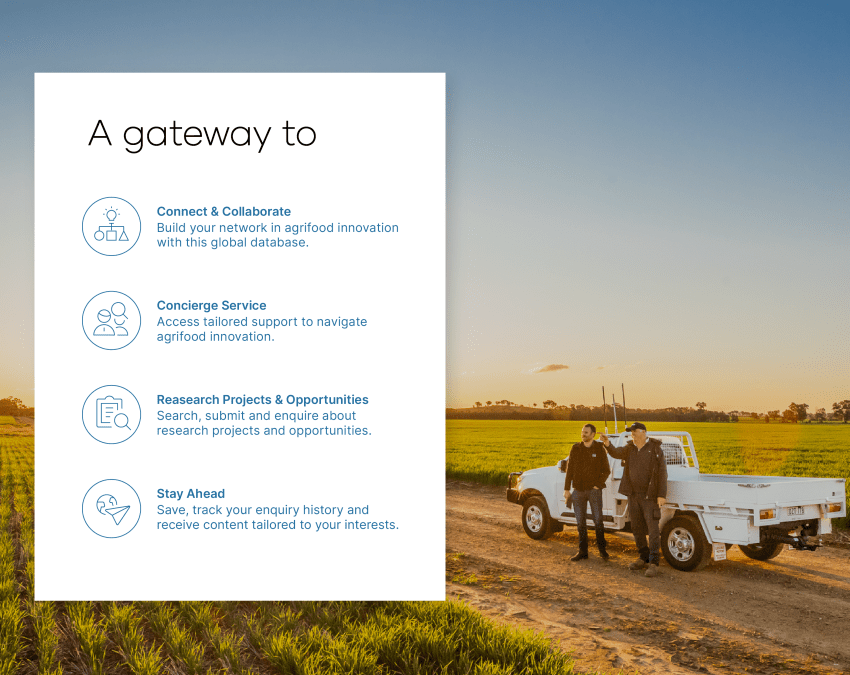
Golden opportunity for investors to back Australia’s most profitable vege
The University of Tasmania has developed a biological inoculant to combat powdery scab, a root and tuber disease creating economic turmoil for potato growers. UTAS is now seeking commercial partners to license the product set to boost crop yield, quality and environmental sustainability.
-crop-1185x680.png)
- Share via Facebook: Golden opportunity for investors to back Australia’s most profitable vege
- Share via LinkedIn: Golden opportunity for investors to back Australia’s most profitable vege
- Share via Twitter: Golden opportunity for investors to back Australia’s most profitable vege
- Share via E-mail: Golden opportunity for investors to back Australia’s most profitable vege
The humble potato is one of the world’s most important food crops, after rice and wheat, feeding over a billion people and producing 320 million tonnes each year. The nutrient dense staple yields $750 million in farm-gate value in Australia per year, making it the nation’s most valuable vegetable crop.
But this profitable industry is under threat. Powdery scab, a soil-borne root and tuber disease, is particularly prevalent in Tasmania, where one third of Australia’s crop is grown.
Yield and quality are the bedrock of the potato industry, both of which powdery scab targets. It causes significant yield declines and cosmetic blemishes which reduce market value.
To combat the disease, the University of Tasmania (UTAS) has dedicated the past decade to researching novel bacterial-based biological solutions to better understand the pathogen Spongospora subterranean responsible for tuber infections. Now, a viable product has emerged.
--reduce-root-disease-width-1680.png)
When applied to potato seed pieces or incorporated in furrows at planting, the bacterium establishes within the potato root zone, promotes robust root growth, increases tuber yields and inhibits powdery scab disease.
During a 2022 trial using the product, researchers found that potato plants emerged earlier and stronger with increases in marketable tuber yield of 16.8%.
The triumph is so profound that the lead researcher, Professor Calum Wilson, a plant pathologist within the Tasmanian Institute of Agriculture (TIA) at UTAS, received The Minister’s Tasmanian STEM Innovation of the Year 2023 award from the Minister for Science and Technology, Madeleine Ogilvie.
UTAS is now seeking commercial entities that are best positioned to maximise in-field application, and commercialise and license the bacterial inoculant product, such as:
- Crop protection specialists (agrichemical companies and chemical resellers)
- Science industry partners for further development of a product
- Potato/vegetable processing and agronomy companies
- Potato farmers for product use
To find out more about the ‘UTAS TIA: Bacterial Inoculant for Plant Growth and Disease Reduction’ commercial opportunity, visit AgriFutures growAG. here.
-powdery-scab-width-1680.png)
How world-class research overcomes powdery scab
“Powdery scab is an insidious, horrible disease, with very few controls – that’s particularly problematic in Tasmania,” Professor Calum Wilson explains.
“Tasmania is just about perfect for growing potatoes. It's not too cold, not too hot, it has good rich deep soils, reasonably plentiful water, sometimes too much and obviously good potato growers.
“However, when it's ideal for potatoes, it's also ideal for potato pathogens because they co-evolve,” Wilson says.
“The pathogen can survive in the soil for decades, with resting spores, which makes it really difficult, as they wait to germinate when potatoes are around, and then infect them.”
--Prof-Calum-Wilson-width-1680.png)
Recognising the disease was challenging, but new tools in the past decade have enabled more accurate measurement of the pathogen in soils. They didn’t come easily though.
“It's a really hard pathogen to work with – you can't culture it, you can't work with it in a lab easily, and everything occurs below ground,” Wilson says.
By focusing on pathogen survival and tuber infection mechanisms, UTAS researchers identified why the pathogen germinates, and how to target and interfere with this process, using isolated rhizosphere bacteria from potato roots that digest the key compounds, but aren’t available to pathogens.
When plants grow, including potatoes, they produce organic compounds [exudates] which encourage healthy biological activity around root systems. It’s these same chemical signals that wake the pathogen and then follow the high concentrations to the plant roots and infect it.
Potatoes – the commercial opportunity to support global food security
UTAS researchers have optimised production processes for formulation and established strong systems for protection of bacterial titre [concentration] and viability. The bacteria are also deposited with the National Measurement Institute, Australia (NMI) and a patent has been filed.
“In the next six months we’ll be firming up results from our trial, due to be complete in March 2024, that will inform our commercial strategy, in tandem with the right partner,” explains Charissa Benstead, Sales, Commercialisation, and Enterprise Director at UTAS InVent (Innovation Ventures).
“While UTAS is open to a range of structures and partners, major agrichemicals companies, in particular the ones that already understand biologicals, shelf-life etc, will have logical pathways to license, formulate and manufacture the product.”
Further trials will reinvestigate inputs to reduce water and fertiliser needs and refine formulation applications to ensure the most cost-effective and environmentally sustainable product for growers.
--potato-crops-width-1680.png)
“If we can achieve healthier root systems, then we need less inputs,” Wilson notes.
“But it's not only about getting more yield, it's actually reducing the cost of inputs, reducing the environmental harm with excessive fertiliser and producing more with less – this is where we need to head to feed the world.”
“With a looming food security crisis, a burgeoning population and limited land, anything that increases yield, is fantastically important,” Benstead adds.
“This is fantastic research with economic benefits for various participants in the value chain, and environmental benefits that’s helping a fantastic local industry that’s so important to Tasmania.”
To find out more about the ‘UTAS TIA: Bacterial Inoculant for Plant Growth and Disease Reduction’ commercial opportunity, visit AgriFutures growAG. here.

Related highlights
Explore all highlights-crop-850x675.png)
Looking for engagement?
Showcase your commercialisation opportunity today.
Talk to our team to discuss how growAG. can connect your innovation to industry.
Have questions? Find answers to our most frequently asked questions on research projects, commercial opportunities, organisations and more.


-crop-770x475.png)
-crop-770x475.png)
-crop-770x475.png)